“You should not ignore these problems because without help, they rarely go away and usually get worse over time. They can interfere with work, social activities…”.1
Umbrella
What may the Menopause Bladder and Bowel Control Problems Umbrella include?
Depending on the Source (DotS) this Umbrella may include:
- Bladder Control
- Bowel Control
- Continence
- Incontinence
- Light Bladder Leakage (LBL)
- Menopause Incontinence
- Urinary Control
Menopause
Is there an association between menopause and bladder and bowel control?
In Women: Menopause – Menopause and Continence the Continence Foundation of Australia elaborate on:
- Weak pelvic floor muscles…
- A less elastic bladder…
- Vaginal dryness…
- Weight gain…
- Other health problems…
- Hysterectomy…
- Anal trauma / surgery…”.2
Symptoms
What are the most common incontinence symptoms?
In Women: Menopause – Menopause and Continence: Symptoms the Continence Foundation of Australia explain:
 “During menopause, passing urine frequently and the urgent need to pass urine are the most common incontinence symptoms. Other symptoms include:
“During menopause, passing urine frequently and the urgent need to pass urine are the most common incontinence symptoms. Other symptoms include:
- Leakage of urine with coughs, sneezes, or exercise
- Leakage of urine on the way to the toilet
- Getting up one or more times per night to pass urine (nocturia)
- Frequent urinary tract infections
- Rushing to the toilet to open bowels
- Being unable to control wind
- Constipation”.3
In Menopause: Symptoms – Common Menopausal Symptoms the (United Kingdom) NHS also note common menopausal symptoms include:
- “…Recurrent urinary tract infections (UTIs)…”.4
Urinary Tract Infection
What is a urinary tract infection (UTI)?
DotS the definition of a UTI may vary. The (Australian) Jean Hailes for Women’s Health’s (JH) definition is:
- Bladder (Cystitis)
- Urethra (Urethritis)
- Kidneys (Pyelonephritis)”.5
In Urinary Tract Infections (UTIs): What Is A UTI? the JH also note:
Diary
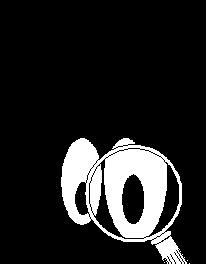 May keeping a diary be helpful?
May keeping a diary be helpful?
Yes. In Talking To Your Doctor About Incontinence: How To Talk To Your Doctor About Incontinence the (United States) National Association for Continence (NAFC) elaborate on:
Diary Information
What important information should a diary contain?
In Talking To Your Doctor About Incontinence: How To Talk To Your Doctor About Incontinence the NAFC explain:
- Recorded toilet habits over a 2 day period
- A list of everything you ate and drank
- Any nighttime trips to the bathroom? How many?
- Note the strength of urine flow
- Any accidents? What happened to cause them?
You might discover more than one set of symptoms and thus face multiple solutions. The point is to create a record of all the symptoms in a context that will be helpful to your doctor in reaching a diagnosis”.8
Helpline
May some Countries have a national continence/incontinence Helpline?
Yes. Your Country may have a Helpline similar to the Continence Foundation of Australia’s National Continence Helpline.
Toilet Maps, Cards or Apps
May some Countries have toilet maps, cards or Apps?
Yes. Your Country may have a toilet map similar to Australia’s National Public Toilet Map: About the Toilet Map which:
Or your Country may have a card or App similar to the (United Kingdom) Bladder & Bowel Community’s (B&B) Free Just Can’t Wait Toilet Card.
Health Care Provider
What if I think I have menopause bladder or bowel control problems?
If you think you have menopause bladder or bowel control problems, it may be in your best interest to choose to talk to your health care provider about this.
The Continence Foundation of Australia encourage us to seek help and explain:
 “You should not ignore these problems because without help, they rarely go away and usually get worse over time. They can interfere with work, social activities, as well as sexual and personal relationships”.10
“You should not ignore these problems because without help, they rarely go away and usually get worse over time. They can interfere with work, social activities, as well as sexual and personal relationships”.10 Health Topics A-Z
Where may I find Health Topics A-Z related to Menopause Bladder and Bowel Control Problems?
In Health Topics A-Z you may find:
Links
Where may I find Links related to Menopause Bladder and Bowel Control Problems?
Your Country may have Links similar to:
Links
This Links List to third party websites is neither comprehensive nor exhaustive. Inclusion on this Links List does not imply endorsement or recommendation. Non-inclusion on this Links List does not imply non-endorsement or non-recommendation. Third party websites are not under the control of Meno Martha International Menopause Directory. Third party websites may contain explicit medical images and/or sexual references. Please read Meno Martha International Menopause Directory’s Links Policy before proceeding to a Link. Please contact Webmaster if you experience a problem with a Link.New or Updated
- Genitourinary Syndrome of Menopause [May 2025]
- Genitourinary Syndrome of Menopause (GSM) [November 2025]
- Hormones and Urinary Symptoms In Women | Dr Louise Newson [17 August 2025]
- How Vaginal Hormones Can Transform the Health of Women [24 November 2025]
- Preventing Urinary Tract Infections After Menopause: What Every Woman Should Know [01 June 2025]
- Webinars: The Burn, the Itch, the Pain, the Urge: GSM In Women [15 April 2025]
- 5 Steps You Can Take Now To Improve Bladder Health
- BMS TV: Urogenital Atrophy
 Bladder Diary
Bladder Diary- Bladder Diary
- Bladder Health
- Bladder Control Problems: How To Seek Treatment
- Bladder Control: Lifestyle Strategies Ease Problems
- Bladder Leakage: Fact Versus Fiction
- Bladder Retraining and Keeping A Blabber Diary
- Bladder Training: Tips and Techniques To Regain Control
- Bladderandbowel.org [Bladder & Bowel Community, United Kingdom]
- Bladderhealthuk.org [Bladder Health UK]
- Bowel Control Problems [Fecal Incontinence]
- Bowel Control Problems [Fecal Incontinence]: Eating, Diet, & Nutrition for Faecal Incontinence – What Should I Avoid Eating If I have Faecal Incontinence? Keeping A Food Diary
- Bowel Conditions
- Bowel Control: Symptoms & Types
- Bowel Health
- Bowel Incontinence
- Bowel Incontinence [+ Video]
- Consumer Video and Podcast Series: 2024 Consumer Videos and Podcasts – Preparing for Your Menopause Health Care Visit
- Continence Foundation of Australia
- Continence Health: Bladder
- Continence Health: Bowel
- Continenceproductadvisor. org [Continence Product Advisor]
- Continence Organisations Worldwide
- Cystitis
- Diet and Exercise
- Fecal Incontinence
- FDA Direct: Removing Black Box Warnings for HRT (Part 1/2)
- FDA Direct: Removing Black Box Warnings for HRT (Part 2/2)
- Find A Menopause Practitioner [United States and Other]
- Find A Practitioner [Australasian Menopause Society i.e. Australia and New Zealand]
- Find Your Nearest BMS Menopause Specialist [British Menopause Society]
- Fistulas
- Foods and Drinks That Can Irritate Your Bladder
- From Leaking Urine To Sudden Urges To Go: An Ob-Gyn Talks Bladder Control Problems
- Gaslighting of Genitourinary Symptoms of the Menopause
- Genitourinary Syndrome of Menopause
- Genitourinary Syndrome of Menopause
- Genitourinary Syndrome of Menopause (GSM)
- Hormones and Urinary Symptoms In Women | Dr Louise Newson
- How To Talk To Your Doctor About Bladder Leakage

- How To Talk To Your Doctor About Bladder Leaks
- How Vaginal Hormones Can Transform the Health of Women
- Incontinence Diaries: Using A Bladder Diary or Bowel Diary
- Incontinence Information In Other Languages
- International Foundation for Functional Gastrointestinal Disorders
- Life With Incontinence: Continence Products
- Managing Incontinence In Perimenopause & Menopause
- Menopause

- Menopause Checklist Podcast: Episode 1: A Wee Problem
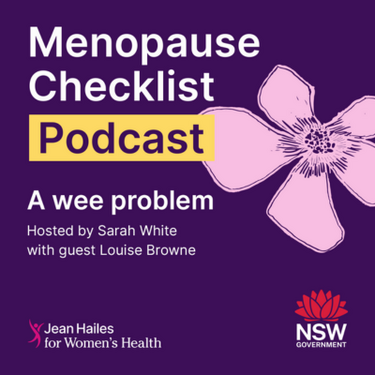
- Menopause Map: Downloadable Resources – My Personal Path Print Tools: Questions for Your Health Care Provider

- Menopause: Identification and Management [NICE Guideline Published: 12 November 2015 Last Updated: 07 November 2024]

- Menopause: Identification and Management: NICE Guideline [NG23] Published: 12 November 2015 Last Updated: 07 November 2024
- Mixed Incontinence Causes and Treatments
- National Association for Continence [United States]
- Navigating Menopause Care Resource Guide
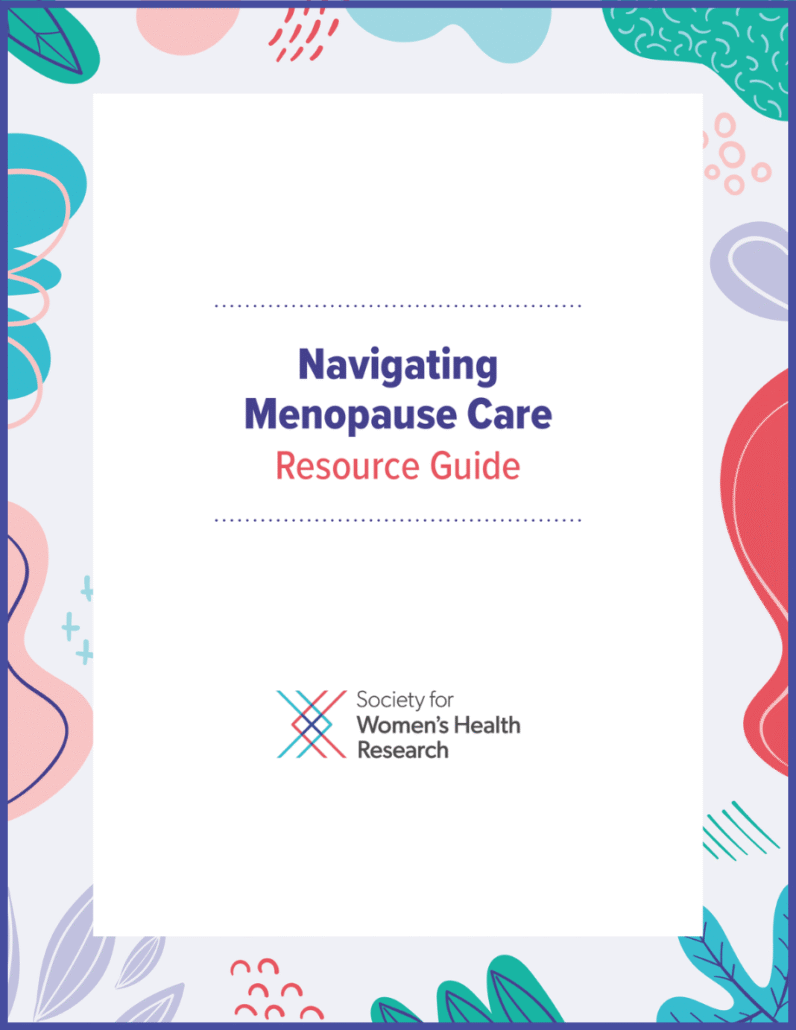
- Other Languages: Incontinence Information In Other Languages
- Overactive Bladder
- Overactive Bladder
- Pelvic Floor First [Continence Foundation of Australia]
- Pelvic Floor Health | Dr Louise Newson LIVE
- Pelvic Organ Prolapse Causes and Treatments
- Perimenopause
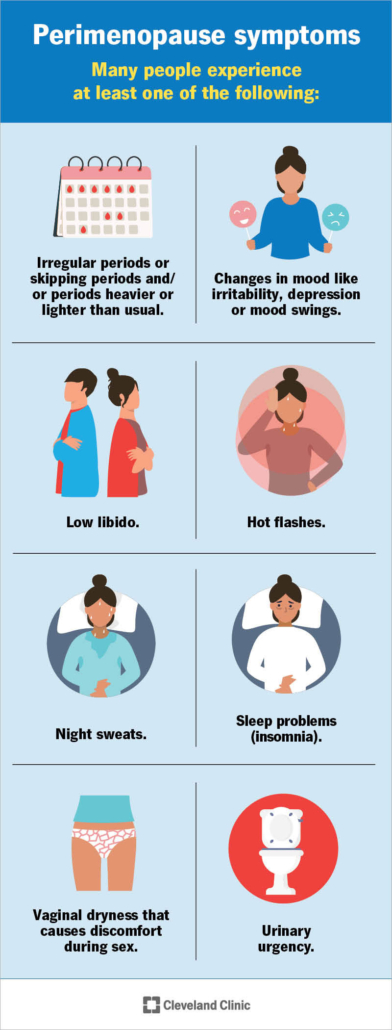
- Perimenopause and Menopause Symptom Checklist

- Preventing Urinary Tract Infections After Menopause: What Every Woman Should Know
- Products To Treat Adult Incontinence
- Products for Women
- Stress Incontinence In Women
- Struggling With UTIs After Menopause? Experts Say This Can Make A Difference
- Supportincontinence.org [Support In Incontinence, World Federation for Incontinence and Pelvic Problems]
- Symptoms of Incontinence [Bowel Incontinence]
- Symptoms of Menopause: Bladder, Vaginal and Vulval Problems
- Talking To Your Doctor About Incontinence [+ Video]
- Urinary Incontinence
- Urinary Incontinence
- Urinary Incontinence
- Urinary Incontinence
- Urinary Incontinence
- Urinary Incontinence In Women
- Urinary Incontinence Overview [+ Video: Understanding Urinary Incontinence]
- Urinary Incontinence – Multiply Languages
- Urinary Incontinence: 10 Ways To Stop Leaks
- Urinary Incontinence: Incontinence Products
- Urinary Tract Infections (UTIs)
- Urinary Tract Infections: Causes, Symptoms and Treatments
- Urinary and Pelvic Floor Conditions
- Using A Bladder Diary or Bowel Diary
- Videos & Podcasts: Videos – Menopause and Hormone Therapy: Current Perspectives and Controversies
- Video Series: Continence FAQs
- Video Series: Continence FAQs
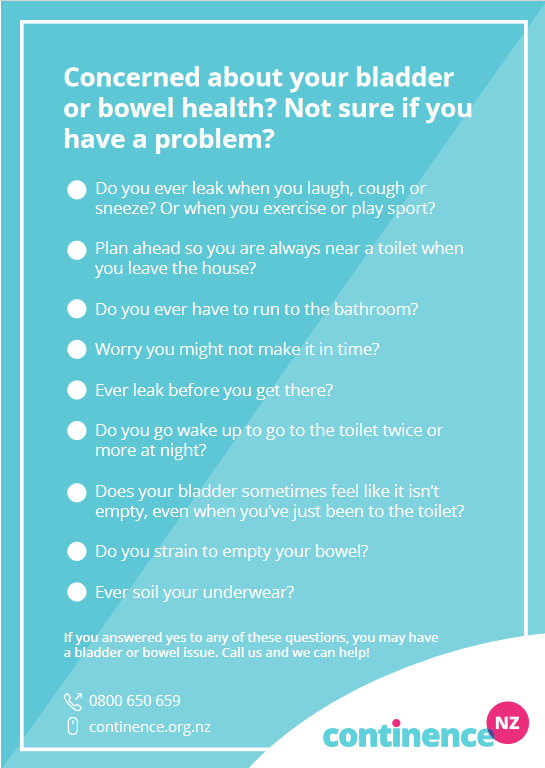
- Voices for PFD [Pelvic Floor Disorders]
- Webinars: Lifestyle Medicine
- Webinars: The Burn, the Itch, the Pain, the Urge: GSM In Women
- What Can You Do for An Overactive Bladder?
- Where Do I Start?
- Women: Menopause – Menopause and Continence
- Women’s Bladder and Bowel Health Conditions
- World Continence Week 2025 [16-22 June 2025]
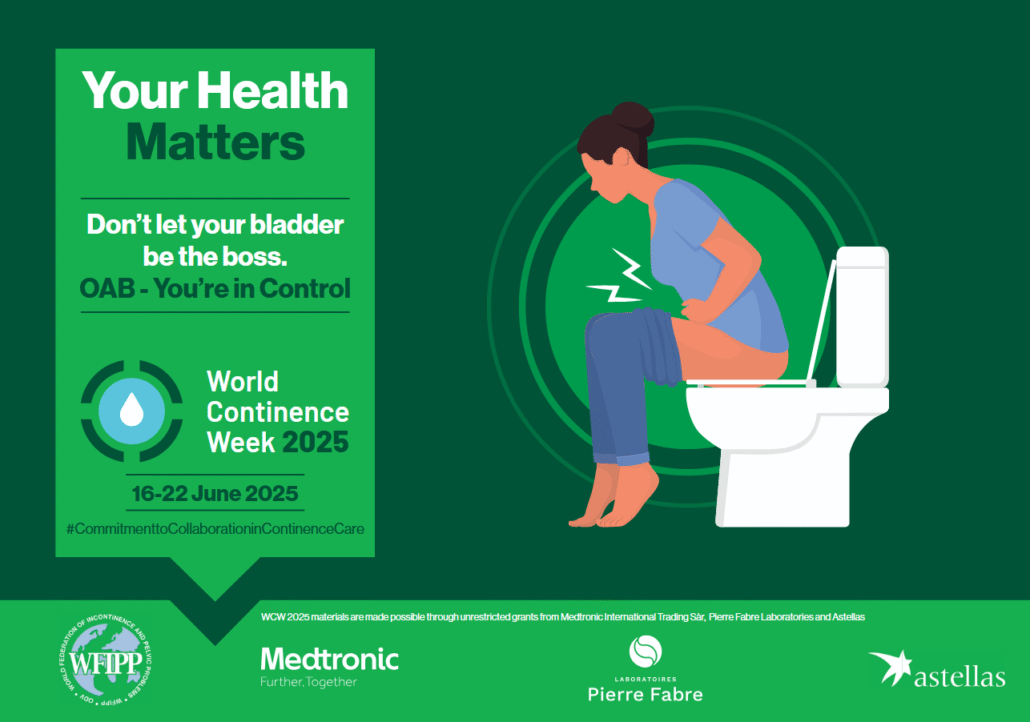
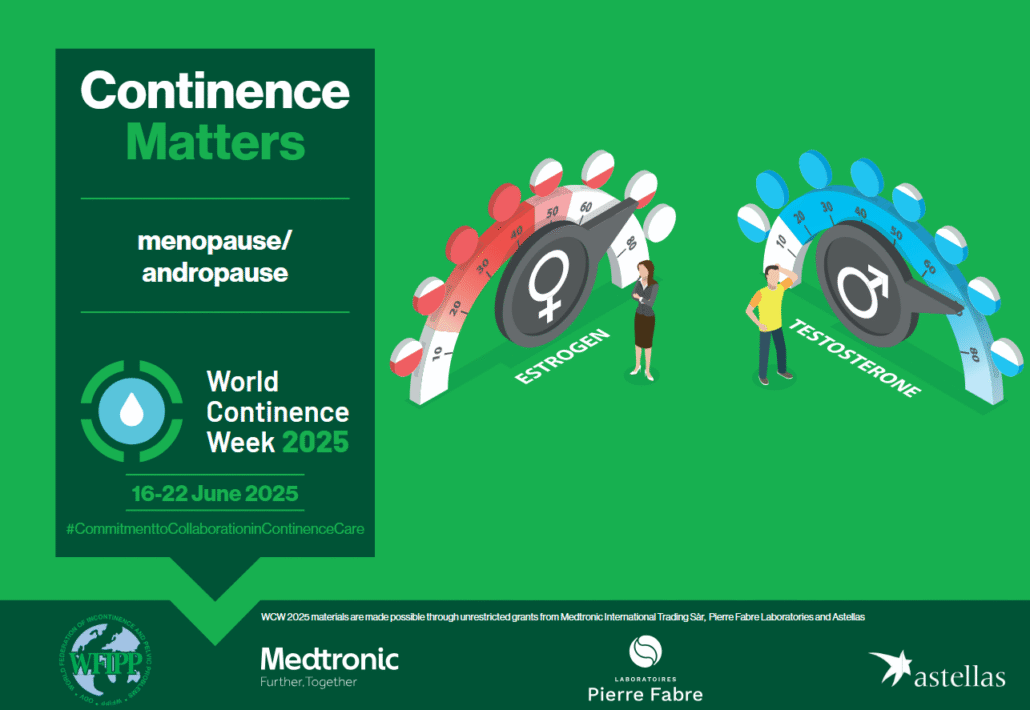
- World Federation for Incontinence and Pelvic Problems
Sources
Where may I find the Sources quoted?
You may find the Sources quoted at:
Sources
- Women: Menopause – Menopause and Continence: Symptoms. Last Updated: 29 May 2024. Last Reviewed: 01 April 2020. Continence Foundation of Australia https://www.continence.org.au/who-it-affects/women/menopause Accessed: 15 January 2026
- Women: Menopause – Menopause and Continence. Last Updated: 29 May 2024. Last Reviewed: 01 April 2020. Continence Foundation of Australia https://www.continence.org.au/who-it-affects/women/menopause Accessed: 15 January 2026
- Women: Menopause – Menopause and Continence: Symptoms. Last Updated: 29 May 2024. Last Reviewed: 01 April 2020. Continence Foundation of Australia https://www.continence.org.au/who-it-affects/women/menopause Accessed: 15 January 2026
- Menopause: Symptoms – Common Menopausal Symptoms. Page Last Reviewed: 17 May 2022. NHS https://www.nhs.uk/conditions/menopause/symptoms/#common-menopausal-symptoms Accessed: 15 January 2026
- Urinary Tract Infections (UTIs): What Is A UTI? Last Updated: 05 December 2024 | Last Reviewed: 17 January 2024. Jean Hailes for Women’s Health https://www.jeanhailes.org.au/health-a-z/bladder/urinary-tract-infections-utis-2 Accessed: 15 January 2026
- Urinary Tract Infections (UTIs): What Is A UTI? Last Updated: 05 December 2024 | Last Reviewed: 17 January 2024. Jean Hailes for Women’s Health https://www.jeanhailes.org.au/health-a-z/bladder/urinary-tract-infections-utis-2 Accessed: 15 January 2026
- Talking To Your Doctor About Incontinence: How To Talk To Your Doctor About Incontinence. National Association for Continence https://www.nafc.org/talking-to-your-doctor Accessed: 15 January 2026
- Talking To Your Doctor: How To Talk To Your Doctor About Incontinence. National Association for Continence https://www.nafc.org/talking-to-your-doctor Accessed: 15 January 2026
- National Public Toilet Map: About the Toilet Map. National Continence Program https://toiletmap.gov.au/about Accessed: 15 January 2026
- Women: Menopause – Menopause and Continence: Symptoms. Last Updated: 29 May 2024. Last Reviewed: 01 April 2020. Continence Foundation of Australia https://www.continence.org.au/who-it-affects/women/menopause Accessed: 15 January 2026







